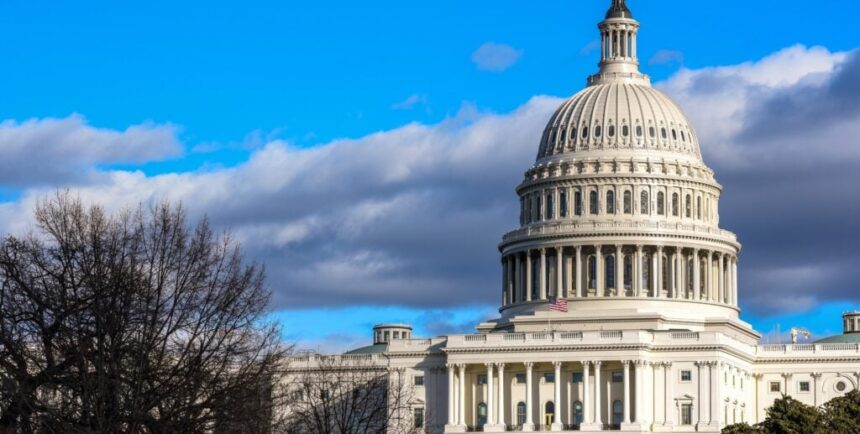If you’ve paid any attention to the news, it can seem like the world is turning upside down. The war in Ukraine still rages, Israel is now in a full-fledged conflict with Hamas, which is purportedly backed by Iran, and there’s tremendous economic uncertainty still putting investors on edge.
While some of these events can feel like they are a world away, one in particular will be felt right here at home and may directly impact your real estate portfolio. And that event is the recent removal of Kevin McCarthy as Speaker of the House.
I’m not going to comment on matters of politics. We’re all entitled to our opinions and beliefs on the way things ought to be, and it’s not for me to project what I feel is right or wrong here.
However, I feel obligated to discuss the current situation since the actions of Congress and the current state of the world have a real impact on your bottom lines. The disarray in Congress and the now added uncertainty due to the Israeli conflict is a recipe for some serious issues that will affect real estate investors.
The Looming Government Shutdown
Former House Speaker Kevin McCarthy was ousted in a 216-210 vote on the House floor. McCarthy’s ousting was a product of his spending compromise with the Democrats to avert a government shutdown that would have started Oct. 1. I won’t get into the details of the spending package, but the point is that McCarthy was able to get a 45-day extension of government funding to push the spending issue down the road.
However, Rep. Matt Gaetz of Florida found this to be unacceptable. He concluded that McCarthy had failed in his role as Speaker by giving concessions and immediately called for a vote of confidence that wound up sending McCarthy packing.
Here’s why this matters to investors: No matter how you feel about government spending, a shutdown is never an ideal scenario. It’s especially problematic for bond yields and, in turn, mortgage rates.
In fact, on the day of the Speaker’s ousting, the yield on the 10-year Treasury note spiked from 4.5% to nearly 4.9%.

It subsided to 4.7% in the days following but then jumped back up to 4.8% as the attacks on Israel began. The yield now sits 1% higher than it did during this time last year and is the highest it’s been since 2007.
The impact of a shutdown on bond yields is largely a measure of confidence in the U.S. government. Economists suspect that a shutdown might trigger a credit downgrade, which could create a massive sell-off of bonds as investors flee for other assets—pushing the yields even higher.
Bond Yields and Mortgage Rates
Mortgage rates are likely to increase if U.S. Treasury rates rise, and investors concerned about this are wise to pay particular attention to the 10-year Treasury rate. As the 10-year rises, typically, so too do mortgage rates. The 10-year rate has been marching upward all year in response to the Federal Reserve raising their benchmark rate and a slow “uninversion” (is that a word?) of the yield curve. Investors who call for a “soft landing” expect the yield curve to continue “uninverting.”
Bonds, specifically U.S. bonds, are issued by the Treasury to service U.S. debts. A 10-year, $10,000 bond purchased at a 5% yield will provide the investor with annual payments of $500 until the date of maturity, which will come 10 years later. At that point, the investor will get their full $10,000 back.
U.S. Treasuries have historically been viewed as incredibly safe investments—literally referred to in many investment circles as the “risk-free” rate of return.
However, bonds that are purchased can be resold to other investors, which is where things can get sticky. From 2010-2022, 10-year T-bills consistently yielded anywhere from 2% to 4%. These are not the most attractive rates to investors, especially when stocks during this time were in full bull mode. But many investors, including high-net-worth individuals, banks, and large corporations, purchase Treasuries, attracted by the low risk of default and high liquidity they provide. However, when interest rates rise, the value of a bond bought prior to the rate hike is worth less, hurting those who have held long-duration U.S. Treasuries over the past year.
In this situation, investors looking to sell their bonds before maturity find that the bonds are not attractive to potential buyers and will have to settle for a lower payout unless they hold them to maturity. This is exactly what happened to Silicon Valley Bank earlier this year—it saw a liquidity crunch due in part to the fact that it held many longer-term U.S. Treasuries, which lost a significant portion of its equity value as rates rose—leading to its collapse.
At the same time, 30-year mortgage rates for buyers with great credit tend to be ~175 bps higher than 10-year Treasuries. As 10-year Treasury rates go up, so too do mortgage rates. As long as the current bond yield remains elevated, mortgage rates will follow suit, as lenders will be forced to peg their rates higher than the yield of a bond.
Why? Well, would you rather lend $300,000 to a consumer earning $100,000 a year in the tech industry at a 5% interest rate or lend the same amount to the U.S. government at a 5% interest rate? The risk profile is much more favorable in the latter, so naturally, a lender would raise their interest rate on the consumer to make up for the added risk.
Of course, higher mortgage rates equal a decline in housing market activity. Prices are already sky-high, having reached another record in August. Reduced inventory brought forth by the “lock-out effect” and waning demand will only continue to push the market to an absolute halt.
Sure, your properties might be worth more now, but good luck finding buyers as rates continue to climb.
But Wait—There’s Another Problem
As if the current situation couldn’t get any worse, Israel was attacked this past weekend. Anytime there’s a war or conflict featuring a major power, there is a real threat to the stability of financial markets.
For instance, the initial economic shock from the attack was felt in the oil markets. The price of Brent crude oil jumped from $84/barrel to $89/barrel almost immediately.
Those numbers aren’t horrible, but the risk of a larger conflict puts a lot of uncertainty in the air.
Furthermore, Iran’s involvement, if it’s true, would create an even larger question about whether Israel retaliates by striking Iran, and if so, are we in for a massive war in the Middle East? Iran, which has been slowly increasing its oil exports, would likely get shunned by the global community, reducing its exports and thus reducing the overall oil supply.
That’s bad news for the U.S. consumer, who has already been paying higher gas prices than we’ve seen over the last several years. Add in higher energy costs, and we’re looking at another contributing factor to the overall inflation rate potentially increasing again. I’ll also note that energy costs are not a factor in core inflation but still contribute to the overall inflation rate.
Now, I’m not saying that energy prices will force the Fed’s hand toward increasing interest rates again just because there’s an uptick in inflation. In fact, it’s possible that the conflict in the Middle East might bring international investors to the U.S. bond market to protect their money, which could actually bring yields down, therefore taking pressure off mortgage rates.
Regardless, the Fed is in a peculiar position, and they’ve already signaled that there might be another rate hike in the near future, although some investors are beginning to think that those days are over.
The Potential Path Out of This
If the House can’t rally behind a Speaker in time, then Congress is essentially a lame duck. There’s no key representative to discuss appropriations on the Republican aisle, and a fractured caucus is likely to yield a Speaker who has to promise that they won’t back down on a spending bill, hurtling us towards another last-minute countdown to a government shutdown.
All of that will only further decrease investor confidence in the government, invite a potential credit downgrade if the government does shut down, and force mortgage rates and bond yields up.
However, there is a way all of this can be avoided. The war in Israel is not a small skirmish. The U.S. has already deployed an aircraft carrier strike group to the Eastern Mediterranean to support Israel, which means, like it or not, we’re involved in this. This could force the House to act swiftly on electing a new Speaker as soon as possible to negotiate an Israeli aid package. In fact, as of Wednesday, the Republicans nominated Steve Scalise of Louisiana in a closed-room vote, but no official Speaker vote has come to the House floor yet.
With that said, having a Speaker in place as early as possible gives the best possible chance of negotiating an appropriation bill that will keep the government open once the deadline arrives. Will that lower bond yields? Who knows? Will mortgage rates keep rising? Maybe. But is it better than shutting down the government? I would say yes.
Ready to succeed in real estate investing? Create a free BiggerPockets account to learn about investment strategies; ask questions and get answers from our community of +2 million members; connect with investor-friendly agents; and so much more.
Note By BiggerPockets: These are opinions written by the author and do not necessarily represent the opinions of BiggerPockets.








